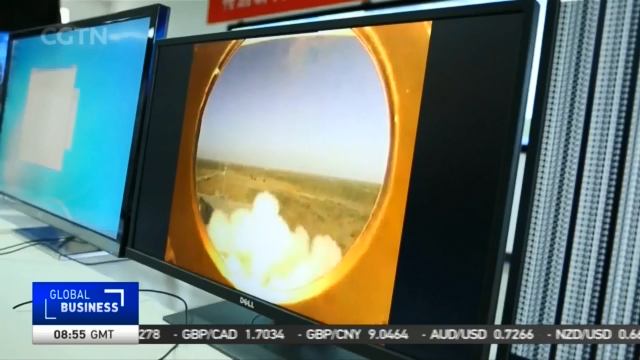
17:21, 20-Sep-2018
Science Literacy World Conference: Professionals share insights on commercial space launches
Updated
16:43, 23-Sep-2018
02:56

The commercial space launch sector continues to heat up. Recent launches by private Chinese companies and new projects abroad are generating excitement about traveling in the final frontier. CGTN's Feng Yilei speaks with experts at the World Conference on Science Literacy who say why space exploration is the future for mankind. CGTN's Feng Yilei reports.
The space travel bug has bitten. And those at the World Conference on Science Literacy in Beijing can't wait to blast off. Japanese billionaire Yusaku Maezawa will be the first private passenger to travel to the moon, courtesy of American aerospace manufacturer SpaceX. Meantime, the first Japanese astronaut to go into space at all is delighted to see the long-standing fascination with moon flight finally materialize.
MAMORU MOHRI EXECUTIVE DIRECTOR, MIRAIKAN "It's great, it's great you know. So far, going into space looks like very dangerous, but from now on for the future, I think space is for everybody to enjoy."
An annual report by a US-based NGO on global space activity shows a 200 percent year-on-year increase in the number of commercial spacecrafts deployed. Global commercial space revenue has an increasing proportion of the total global space economy, now accounting for 80%. Much of that comes from products and services in space, such as satellite television. And one expert says revenue is just the beginning.
"It's not replacing, but it's proving an additional part to the understanding of space, the exploration of space and very particularly the utilization of space."
China's commercial space market has also grown rapidly, especially in the fields of commercial rockets, satellites, and tracking and command technologies.
Already this month, several private companies have sent spacecrafts into sub-orbital space. A national space administration spokesperson says the government has been encouraging private space activities, like cooperation and satellite-sharing mechanisms. But problems in terms of satellite routes, outer space sovereignty and freedom, have also emerged.
LI GUOPING, SPOKESMAN CHINA NATIONAL SPACE ADMINISTRATION "The Chinese government will strengthen its administration. A notice will be soon issued to regulate scientific research, production and services of space launch vehicles. In the coming years, we will also introduce guidelines to promote the development of commercial space in light of the current situation and future needs of modern commercial spaceflight."
Experts say China has already set out to build a shared launch site. An aerospace law is also on the agenda of China's top legislative body and is expected in the next three to five years.
FENG YILEI BEIJING "Commercialization of space has brought more private entities, investors and even common people into the sector as both actors and beneficiaries. Experts say, we are now at a particular time point, where risks and sustainability regarding space exploration relate to us all. FYL, CGTN, BJ."

SITEMAP
Copyright © 2018 CGTN. Beijing ICP prepared NO.16065310-3
Copyright © 2018 CGTN. Beijing ICP prepared NO.16065310-3